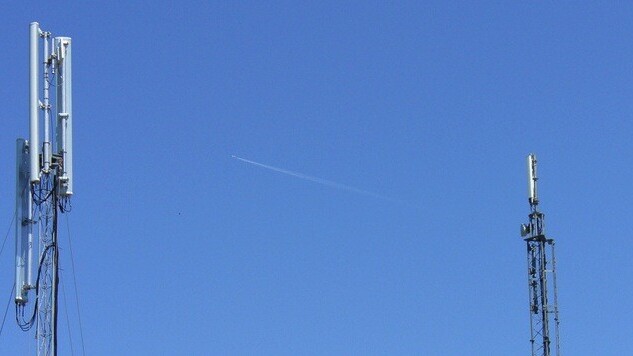
After more than 50 rounds of bidding, the UK’s 4G auction had concluded, with EE, Three, Niche Spectrum Ventures Ltd (part of BT), O2 and Vodafone raising £2.34 billion ($3.62 billion) to secure a total of 250 MHz of spectrum.
According to results published by the UK’s communications regulator Ofcom, the five bidders each paid in the hundreds of millions of pounds to secure parts of the important 800 MHz and 2.6 GHz bands. O2 emerged as the winner of one 800 MHz lot and will have to provide indoor coverage to 98 percent of the UK population by the end of 2017.
The bids are broken down as follows:
EE won two 5 MHz lots of 800 MHz and two 35 MHz lots of 2.6 GHz spectrum for a total of £588,876,000 ($909.5 million), Three secured two 5 MHz lots of 800 MHz for £225,000,000 ($347.5 million), as BT’s Niche Spectrum Ventures won two 15 MHz of 2.6 GHz and one 20 MHz lot of 2.6 GHz (unpaired) spectrum for £186,476,000 ($288 million).
Paying £550,000,000 ($852 million), Telefonica (O2) went on to win two 10 MHz lots of 800 MHz spectrum, which it will be obliged to provide to 98 percent of the UK.
Vodafone, perhaps the most vociferous of the operators following EE’s early launch of its 1800 MHz 4G networks last year, managed to get its hands on two 10 MHz lots of 800 MHz, two 20 MHz lots of 2.6 GHz and one 25 MHz lot of 2.6 GHz for a total of £790,761,000 ($1.22 billion).
Vodafone ended up paying over £200 million more to secure more 4G spectrum than its rivals. BT, which is the only non-carrier of the five winning bidders (doesn’t provide mobile tariffs to customers), has already said it doesn’t intend to offer national networks but it will use its spectrum to supplement its existing wireless and fixed networks.
With Vodafone and EE winning vital 800 MHz and 2.6 GHz spectrum, they are well-placed to deliver wide-ranging 4G networks in both urban and rural areas. Winning 2.6 GHz spectrum, the two carriers will deliver high-speed connections, while 800 MHz is better suited to travelling long distances (using the same spectrum previously reserved for analog TV signals). Offering both gives them the upper hand over their rivals (and demonstrates their buying power).
All of the five winning bidders have until 23:59 tomorrow night to pay for the spectrum they have won, which will be collected by the government. It will be significantly less than the £3.5 billion estimated by the government before the auction began.
Understanding that Vodafone, EE and Telefonica would be able to outbid its smaller rivals, Ofcom made the decision to reserve spectrum for a fourth national wholesaler. In this case, it was Three (owned by Hutchinson) that won the reserved spectrum.
Now that the auction has ended, Ofcom will now work with the winning parties to identify where their spectrum will be located. Once this has been completed (and fees have been paid), Ofcom will grant the spectrum to the auction winners, who will then be able to roll out their 4G network by late spring/early summer.
Get the TNW newsletter
Get the most important tech news in your inbox each week.





